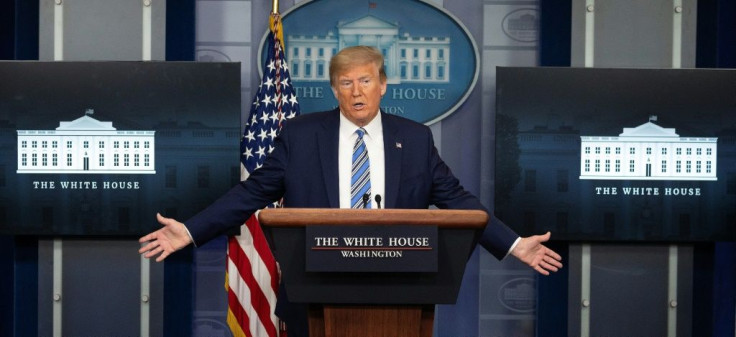Trump To Temporarily Suspend Immigration Into US Amid Pandemic, Cites 'Invisible Enemy'

KEY POINTS
- President Trump tweeted that he will sign an EO to suspend immigration to the U.S.
- The suspension is related to the coronavirus pandemic
- The president also noted the need to protect Americans' jobs
- Non-essential travel restrictions with Canada and Mexico extended until May 19
President Donald Trump tweeted Monday (April 21) that he will sign an executive order to temporarily suspend immigration into the U.S. amid the ongoing COVID-19 pandemic. The president also noted the need to "protect jobs."
"In light of the attack from the Invisible Enemy, as well as the need to protect the jobs of our Great American Citizens, I will be signing an Executive Order to temporarily suspend immigration into the United States," Trump wrote.
It is so far unclear when the order will be signed or how it will be carried out. Any such order will also most probably run into legal challenges.
With the U.S. economy on hold due to the pandemic, over 22 million people have filed for unemployment benefits in the last month, with many families now having to line up at food banks while waiting for government aid.
The U.S. has not seen this level of job losses since the Great Depression, with many people losing their jobs and businesses having to close. Even the businesses that have remained open are seeing significant drop in sales.
As of April 21, the U.S. has reported the most number of COVID-19 cases in the world, with over 786,000 cases and more than 42,000 deaths, according to a dashboard maintained by the John Hopkins University.
Earlier in the outbreak, the U.S. had enforced a travel ban in an effort to stop the spread of the coronavirus. That ban did not apply to American citizens, legal permanent residents and their immediate families. At the time, confirmed coronavirus cases in the U.S. were at over 2,200 and the virus had already spread to nearly every state.
Meanwhile, the U.S. Department of Homeland Security announced Monday that it will extend restrictions in place for non-essential travel between the U.S., Canada and Mexico by 30 days. This means that the temporary border closure, which was first enforced March 21, will be extended until May 19.
“In close collaboration, the U.S., Mexico, and Canada have each agreed to extend restrictions on non-essential travel across their shared borders for 30 additional days,” Acting Secretary Chad Wolf said in a statement. “As President Trump stated last week, border control, travel restrictions and other limitations remain critical to slowing the spread and allowing the phased opening of the country.”
© Copyright IBTimes 2025. All rights reserved.






















